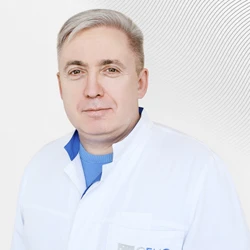Breast cysts are fluid–filled cavities that form in the ducts of the breast. Fibrocystic changes in the mammary glands occur in women of any age. As a rule, this is the result of hormonal imbalance in the body. A breast cyst usually does not manifest itself in any way and is accidentally detected during an examination of the mammary glands.
Do I need to treat a breast cyst?
If the walls of the cyst are thin and there are no growths inside it, then this cyst is called simple. Simple cysts that do not cause inconvenience to a woman and do not change the shape of the breast do not require treatment, including evacuation of fluid from the cyst cavity. This also applies to multicameral cysts, when several formations merge into one. Giant cysts over 5 cm in diameter also do not require removal if they do not bother the woman and do not deform the gland.
Usually, some time after the evacuation, the cyst fills up with fluid again, and this situation can be repeated many times. Constant procedures for the evacuation of fluid from the cyst tire a woman, and at the same time they do not make much sense.
Breast cyst: diagnosis
If the cyst is small and clearly visible on ultrasound, additional examinations are not required. Modern ultrasound devices with a Doppler scanning system make it possible to study the cyst in detail, assess the structure of the walls, and determine the presence of parietal formations.
If the education looks unusual, it is recommended to conduct MRI of the mammary glands. This is a modern high-tech research method that allows you to get a detailed picture of all areas of the breast, lymph nodes, and assess the nature of the formations.
If the parietal component inside the cyst looks especially good on an MRI scan, an aspiration biopsy is performed. Using a thin needle, the fluid from the cyst is evacuated and sent for analysis to a pathology laboratory.
What should I do with cysts that become inflamed?
Sometimes the cysts become inflamed, they hurt, and suppuration occurs in the cyst cavity. In this case, an aspiration puncture is performed, fluid is removed from the cyst cavity, and the pain disappears. In rare cases, cyst abscess requires surgery.
As a rule, inflammation can be removed with the help of complex therapy, including treatment with antibiotics and anti-inflammatory drugs.
Do cysts affect the risk of breast cancer?
A simple cyst does not degenerate into cancer and does not increase the risk of breast cancer. In rare cases, cancer develops inside the cyst.
In polycystic disease, due to multiple cystic formations, cancer diagnosis is difficult. Therefore, patients with this diagnosis are prescribed an MRI scan of the mammary glands in addition to mammography.









.webp)

